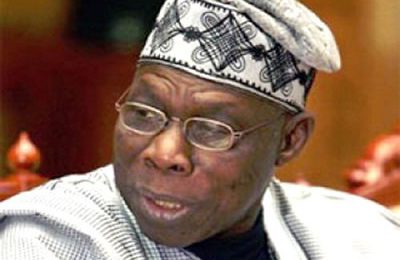The total number of 3G and 4G Base Transceiver Stations (BTS) infrastructure in the country increased from 30,000 to 53,460 while Fibre Optic Transmission cables expanded from 47,000km to 54,725km in the last five years, resulting in improved broadband/telecoms service delivery to Nigerians.

NewswatchNigeria can report that wireless communication operators in Nigeria have increased the unit of third generation 3G and fourth-generation 4G Base Transceiver Stations, BTS in use in the country to about 53,460 from 30,000.
The operators expanded the total number of 3G and 4G BTS infrastructure for a nationwide coverage from 30,000 to 53,460, while Fibre Optic Transmission cables expanded from 47,000km to 54,725km in the last five years.
Base station (in communications) Definition: [A mobile phone base station is] a transmission and reception station in a fixed location, consisting of one or more receive/transmit antenna, microwave dish, and electronic circuitry, used to handle cellular traffic.
The Executive Vice Chairman of Nigerian Communications Commission (NCC), Prof. Umar Danbatta made this known while welcoming the new Permanent Secretary for the Ministry of Communications and Digital Economy, Engr. Festus Yusuf Daudu, on Tuesday.
Also, Danbatta briefed the new Perm Sec on NCC’s enabling laws, mandates, structure, implementation approach of mandates, and methodology. He also touched on focus and targets, scorecards, a new Strategic Management Vision (SVP) which the commission will soon unveil.
READ ALSO: Why NCC Tasks Telecom Consumers on Infrastructure Protection
According to Danbatta, through the effective regulatory regime of his administration, the Commission has helped telecoms operators increase deployment of infrastructure, which in turn, helped to improve broadband penetration and other related service delivery in the telecoms industry.
He said: “The BTS, fibre optic cables and other related infrastructure are central to the provision of improved service experience for Nigerians by their respective telecoms service providers”

He added that the Infrastructure Companies (InfraCos) licensed recently by the commission, are also expected to add 38,296km to optic fibre cables when they commence operations fully.
Danbatta said that as of November 2020, active telephony subscribers stood at 208 million with teledensity standing at 108.92 percent, broadband penetration grew to 45.07 percent while active Internet subscriptions hit 154.9 million, among others.
In recognition of the tremendous economic growth opportunities afforded by the deployment of broadband and its associated technologies, Danbatta said the Commission has positioned itself in the government’s drive for a digital Nigeria, as contained in the Nigerian National Broadband Plan (2020 – 2025), the National Digital Economy Policy and Strategy (2020 – 2030) and the Strategic Management Plan (2020 – 2024) of the Commission.
“The Commission will continue to put in its best in the discharge of its mandates, especially in facilitating the deployment of broadband, which is central to diversifying the Nigerian economy and national development. Also, it is our belief that the communications industry, under the leadership of the Ministry of Communications and Digital Economy, will experience more quantum leaps and retain its current leadership role in the telecommunications space,” he said.
The EVC reeled out some consumer-centric regulatory interventions which the Commission uses to stimulate the industry to include the issuance of various directions to mobile network operators (MNOs) to protect the consumers from being short-changed, ensuring a smooth transition of Etisalat to 9Mobile, consumer outreach programmes, introduction and enforcement of mobile number portability (MNP) as well as the introduction of the Do-Not-Disturb (DND) 2442 to check cases of unsolicited text messages.
READ ALSO: How to Access Funds for Innovation in Telecommunication
The EVC disclosed that the number of subscriptions to the DND service has hit over 30 million as the service empowers Nigerians to be able to protect themselves from the menace of unsolicited text messages.
In his reaction, the Perm Sec commended the leadership of the Commission, acknowledging the upward growth attributed to the effective regulatory regime, the central role NCC is playing in the digital transformation of the Nigerian economy as well as the impressive contribution of the sector to the country’s Gross Domestic (GDP).
“I want to thank NCC for its contribution to the Nigerian economy so far. I am not exaggerating about the achievements of NCC, in terms of contribution to GDP and how NCC’s effective regulatory role has helped the economy in so many ways,” he said
He charged the Commission to increase collaboration and teamwork with the Ministry, other agencies, and industry stakeholders towards achieving the Federal Government’s objective of a digital economy.









